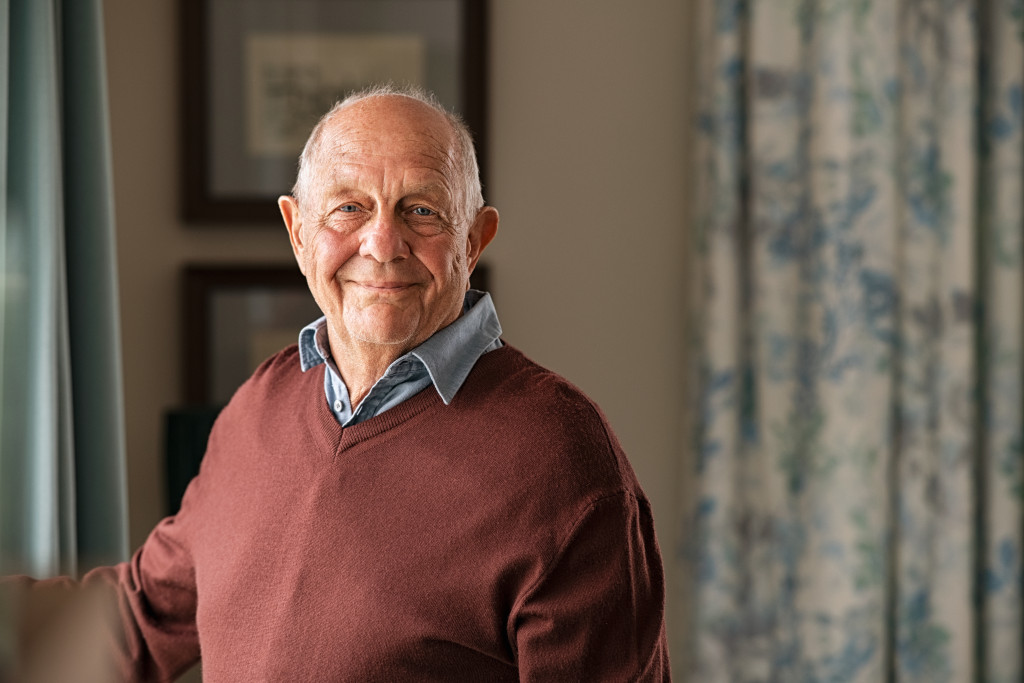- Declutter and rearrange your home space for easier navigation.
- Install handrails, chair lifts, and night lights for increased safety.
- Create a medication management system to reduce the risk of drug interactions or overdoses.
- Hire professional help or invest in assistive technology.
- Use technology to stay connected with family and caregivers and get on top of fire safety.
As people age, their needs and capacities change in many ways. One area that requires special attention is the home environment. Many everyday household items and activities that seem innocuous to younger people can pose significant risks to elderly individuals, who may have decreased vision, mobility, balance, and coordination. Here’s how to take proactive measures to ensure your home is safe and comfortable, especially if you’re an elder.
Declutter and Rearrange Your Space
One of the most fundamental steps you can take to make your home safer is to declutter and rearrange your space so that it’s easy to navigate and free of hazards. Remove tripping hazards such as rugs, cords, and clutter, and rearrange furniture to create clear paths. Here are some other things you can do:
Make Sure the Home Is Well-lit
Lighting is an important safety factor in the home. Good lighting can reduce the risk of slips and falls and help make navigation around the space more accessible.
Make sure that all hallways and stairwells are well-lit, with plenty of light sources. In addition, install night lights in bathrooms and hallways for easier navigation at night.
Install Handrails or Chair Lifts
If you have stairs in your home, install handrails on both sides of the staircase. This will provide much-needed support when climbing stairs, reducing the risk of a slip or fall.
If you’re unable to climb steps, consider installing a chair lift. This will make it much easier to move between floors.
Create a Medication Management System
Many elderly people take multiple medications, which can be easy to forget or mix. This can lead to dangerous drug interactions, overdoses, or missed doses.
To avoid these issues, create a medication management system that helps you keep track of your pills, including the names, dosages, and schedules. You can use a pillbox, a medication reminder app, or a calendar to keep everything organized.

Hire Professional Help
If you’re feeling overwhelmed by the task of making your home safer, hiring a reliable home service is a great option. Elder care professionals have experience and knowledge of how to safely navigate a home environment and can provide assistance with tasks such as rearranging furniture, decluttering, and more.
For instance, home care aides can help ensure safety measures, such as non-slip bath mats or handrails, are in place. In addition, they can provide assistance with medication management and other activities of daily living.
If possible, seek help from a trusted home care provider that offers comprehensive care. Look at the feedback from previous clients to ensure that you hire the right professional for your needs.

Invest in Assistive Technology
There are many types of assistive technology devices that can help elderly people stay safe and independent in their homes. Smart home systems can automate tasks such as turning on lights or locking doors, and wearable devices can monitor vital signs or detect falls. You can also get special phones with large buttons and amplified sound, bed rails, or bed alarms for added security. On top of that, here are some areas where technology can help:
Stay Connected With Family and Caregivers
Social isolation and loneliness are significant issues for many elderly people and can lead to depression, anxiety, and other health problems. To combat this, make sure to stay connected with your family and caregivers, even if you can’t see them in person.
Use video calls, phone calls, or messaging apps to stay in touch, and consider hiring a professional caregiver or joining a senior center or community group to meet new people and participate in fun activities.
Don’t Forget About Fire Safety
Fires can be extremely dangerous, and elderly people are at higher risk of injury or death from burns, smoke inhalation, and other fire-related hazards. To prevent fires, make sure that all appliances, electrical cords, and heating systems are in good working condition and have passed safety inspections.
Keep flammable items such as curtains, papers, and clothes away from heaters and stoves. Install smoke detectors on every floor of your home, and test them regularly to ensure that they’re working.
Keeping safe in the home is essential for elderly people, who may face a higher risk of accidents and injuries due to decreased physical abilities and health conditions. Following these helpful tips can create a safer and more comfortable living environment, whether you live independently or with family and caregivers. With a little bit of effort and attention, you can enjoy your golden years without worrying about unnecessary risks and hazards.


